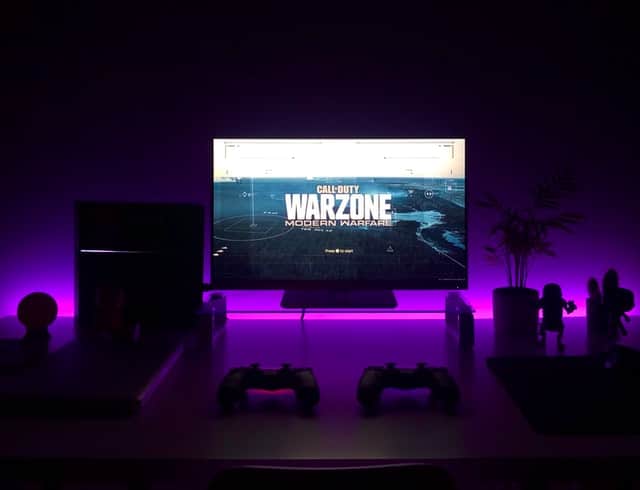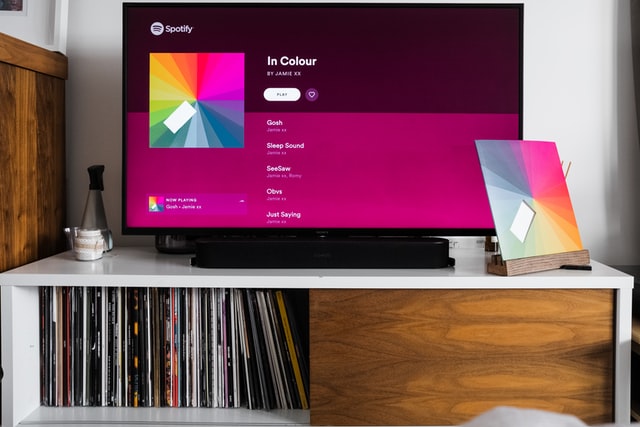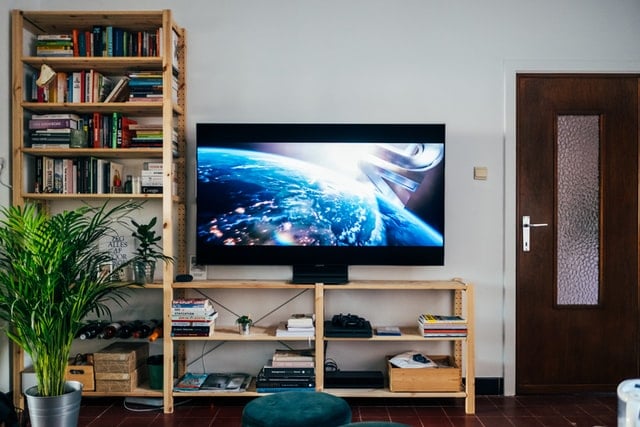Picking a TV is hard, especially now that LCD vs LED is a thing and so many sellers exploit this to sell more. Even though this is a real fight, you should be thinking instead which is best suited for what you need and which can bring you the best image. Entertainment is crucial for your wellbeing now that you can’t go so much outside and a good TV could be a lifesaver.
Modern electronics can be confusing – even TVs – so it is good to know more about what you are going to buy before you go. If you aren’t an electronic enthusiast, you would want to know about LCD and LED and what is the difference between the both of them, and here we will tell you all about it.
Table of Contents
What exactly are LED and LCD?
LED is a light-emitting diode – or LED – a semiconductor that emits light each time an electric current is passed through. Meanwhile, LCD or Liquid crysta, display is a technology that blocks light instead of emitting it. This might sound confusing but the answer is right there, both are different technologies even though they are related.
LCD and LED both use liquid crystal technology with a series of lamps in the back, but the lamps and their placement are different. LCD use fluorescent lights and, on the other hand, LED use the light-emitting diodes we mentioned before. Now there are new LED technologies that can have a guide on their own, but we will talk about them in a little while.
Which are the differences between LCD vs LED
Besides the technology and the technical differences, the picture, contrast, and colors are different on both. These are the main things that you will consider to buy one over another and we will point some of the biggest ones down below.
Picture quality
When you buy a TV you want to have the best picture you can get and this is probably your main concern. LCD screens can depict color more closely to how they look in real life, the image is more opaque, however, LEDs have a more dynamic depiction and contrast, which can result in a better quality image.
Viewing angles and the impact in your eyes is something you should have in mind too. LCD projects a clear image straightforward but, if you are in some angles, the picture might distort. LED has a bigger viewing angle, the image will be almost always clear and its light has a better impact on your eyes.
Video respond
If you are planning to watch live TV or stream something at its highest quality, you might want to use a LED. Video responds faster in LED TVs or monitors than LCD ones, this way you can have a more accurate depiction of motion.
Gaming
This is a key part for us and maybe for you too. Gaming is a whole experience and the more immersive it is the better. In this case, the LED can offer you better viewing angles, better response timing, and higher refresh rates. But, on the other hand, LCD can give you better backlighting and better graphics.

You can pair this monitor with your built gaming pc, or if instead, you are looking for one, we have a complete guide for this.
Design
This is more of a monitor conflict if you want to use any of these technologies for one. If you are a graphic designer, you need a monitor with a high-quality image and an accurate one. LEDs are great for this even though they might depict colors with higher contrast, mostly because they are gentler with your eyes.
LCD has a better depiction of colors and a lower contrast most of the time but its light is harmful to your eyes, this means you will get tired faster. If you really need a better image, you should buy this option but it could be worse on the long run.
Energy cost
LED has the lowest energy consumption compared to all of the other displays. This means you can save money and watch your TV for hours without having to worry about consume. In this case, LCD uses a lot of power, this can even make the TV warmer and the LCD won’t last as much as a LED in the long term.
Size
The light that LCD uses is bigger and heavier and the light is on the back of the TV, which means these TVs are bigger and thicker. LED, thanks to the size of the diodes, are the slimmest TVs on the market, they can fit almost everywhere and they are light, so it’s easier to hang them.
Price tag
If your budget is a problem and you are having this LCD vs LED issue, LED is the answer you’re looking for because they are more durable, easier to fix, and long-lasting. LCD screens are good, but their lifetime is shorter and if something goes wrong, instead of changing just one LED, you might need to change the whole LCD light system to get it to work.
OLED or QLED
LED technology is changing fast and there are some more options than just LED you might want to know more about. The most recent technologies are OLED and QLED, more focused on bringing a higher picture quality, a bigger contrast, and a closer accuracy with colors.
What is OLED?
OLED or Organic Light-Emitting Diode is a technology that uses a panel of pixels-sized organic plates that respond to electricity. Each pixel can respond individually to the electricity, in other words, can be turned on and off at will. This kind of screen doesn’t need a backlight to create contrast, it uses the off pixels to create contrast, and this results in better contrast.
By using only the OLED as the main source of light, these TVs removed the backlight. Thanks to this they are the thinnest in the market, being just some millimeters thin.

What is QLED?
This is a premium version of all the LEDs we mentioned above and is a technology developed by Samsung. Instead of using a backlight, this technology uses a Quantum Dot material and LEDs to bring a high-quality image. This is still really thin but the contrast is better and it has brighter colors and grayscales.
Which one is better at the end?
We can’t resume everything in a LED vs LCD fight to dead because as we said, it truly depends on what you want. LED is a better choice if you want to invest in something that you won’t have to change at some point; the image quality is amazing too and it is easier to fix if something happens. These TVs are solid and you can enjoy this technology for a lower price at the end.
On the other hand, even though the benefits of LED are more attractive, LCD has an accurate image and this can mean quality to you. The colors are less bright but are closer to reality and they have a wider rank of colors. They are expensive but there is a motive behind it and, if you don’t abuse the TV, it can still last for years.
We recommend that, before you buy it, you ask yourself what you want to do with the TV and if you will spend a lot of time sitting in front of it. We also suggest that you take your time in the store and ask an employee who is there to help you if they know the matter.





